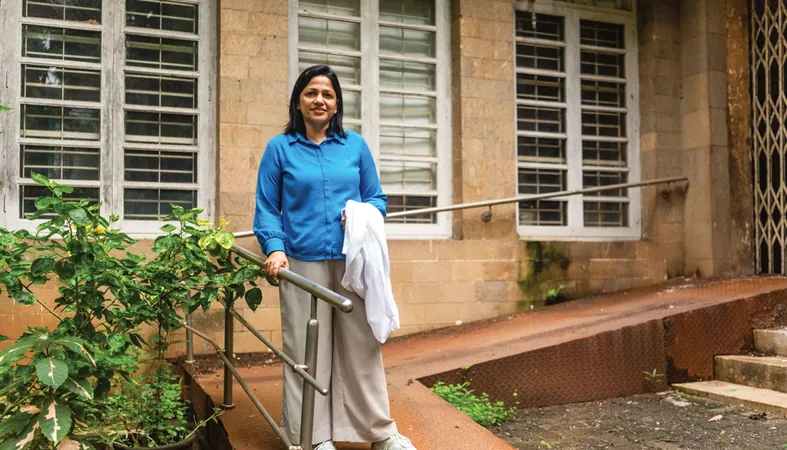
Turning Floral Waste into Power: Meet Neetu Jha, the Innovator Behind Green Energy
2025-09-15
Author: Daniel
A Unique Transformation: From Temple Offerings to High-Performance Electrodes
In a stunning twist, the flowers offered daily at temples, mosques, and gurdwaras across India are finding a second life in the quest for renewable energy. Each year, over 8 million metric tons of floral waste, often discarded into landfills or waterways, are transformed by Neetu Jha's groundbreaking work at the Institute of Chemical Technology in Mumbai.
Jha ingeniously repurposes the remnants left after extracting nutraceutical components from these flowers. The end product—dry, fibrous material—is perfect for crafting electrodes. "Through pyrolysis, we convert this into a carbon material that is powdery to the naked eye but spongy when viewed under a microscope," Jha explains, highlighting the scientific process behind her high-performance energy solutions.
Jha’s Commitment to Sustainable Energy Solutions
As the principal investigator at ICT’s Nano Energy Lab, Jha is passionate about developing materials for energy storage devices, including fuel cells, supercapacitors, and zinc-ion batteries. She also explores innovative water treatment technologies using biomass-based materials, proving that sustainability can be achieved through creativity.
Overcoming Challenges: A Journey of Resilience
Living with a locomotor disability due to polio contracted at age 12, Jha's journey is a testament to resilience. Despite enduring significant physical challenges, she played sports and embraced life fully alongside her three energetic sisters. Today, she encourages others to view differences not as disabilities but as unique qualities.
Advocating for Accessibility and Inclusion
Jha’s journey hasn't been without hurdles. When she joined ICT in 2012, she campaigned for mobility-friendly facilities, including railings and elevators, advocating for inclusivity not just for herself, but for everyone in the academic community. "These changes benefit all students and faculty, making the campus more accessible for everyone," she asserts.
Paving the Way for Future Generations
While the Indian government mandates educational accessibility for the disabled, Jha sees vast improvements needed in institutional practices. She urges her peers and society to foster an inclusive atmosphere and amplify the voices of those who may not feel empowered to speak up.
A Rising Star in Green Innovation
Recently, Jha received a prestigious grant alongside Ashish Kumar Mishra from IIT (BHU) to advance electric vehicle research in India. Mishra praises her methodical approach and the exceptional quality of her research, which has garnered numerous awards and recognition.
Innovating Green Solutions with Zinc-Ion Batteries
Currently, Jha focuses on harnessing India's ample zinc production to create a cleaner energy future through zinc-ion batteries. Not stopping there, she’s also investigating how to integrate biomass waste into electrode production, emphasizing the scientific community's role in the global energy transition.
"It’s our responsibility to take action for the planet’s future," Jha emphasizes, reminding us that innovation in sustainability begins with bold ideas and dedicated individuals ready to make a difference.


 Brasil (PT)
Brasil (PT)
 Canada (EN)
Canada (EN)
 Chile (ES)
Chile (ES)
 Česko (CS)
Česko (CS)
 대한민국 (KO)
대한민국 (KO)
 España (ES)
España (ES)
 France (FR)
France (FR)
 Hong Kong (EN)
Hong Kong (EN)
 Italia (IT)
Italia (IT)
 日本 (JA)
日本 (JA)
 Magyarország (HU)
Magyarország (HU)
 Norge (NO)
Norge (NO)
 Polska (PL)
Polska (PL)
 Schweiz (DE)
Schweiz (DE)
 Singapore (EN)
Singapore (EN)
 Sverige (SV)
Sverige (SV)
 Suomi (FI)
Suomi (FI)
 Türkiye (TR)
Türkiye (TR)
 الإمارات العربية المتحدة (AR)
الإمارات العربية المتحدة (AR)